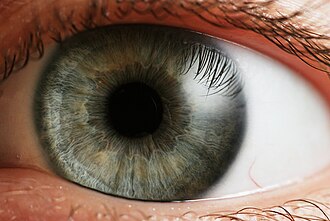Sensory nervous system
(Redirected from Sensory systems)
Sensory nervous system
The sensory nervous system is a part of the nervous system responsible for processing sensory information. It is a component of the peripheral nervous system (PNS) and consists of sensory neurons (also known as afferent neurons) and neural pathways that lead to the central nervous system (CNS). The sensory nervous system is essential for detecting and responding to various stimuli from the environment, such as touch, temperature, pain, and sound.
Structure
The sensory nervous system is composed of several key components:
- Sensory receptors: Specialized cells or cell structures that detect specific types of stimuli. Examples include mechanoreceptors for touch, thermoreceptors for temperature, nociceptors for pain, and photoreceptors for light.
- Sensory neurons: Neurons that transmit sensory information from the receptors to the CNS. These neurons have long dendrites that extend to the sensory receptors and axons that project to the CNS.
- Sensory pathways: Neural pathways that carry sensory information from the sensory neurons to the CNS. These pathways often involve multiple synapses and relay stations within the spinal cord and brain.
Function
The primary function of the sensory nervous system is to detect and transmit sensory information to the CNS, where it can be processed and interpreted. This process involves several steps:
1. Detection: Sensory receptors detect specific stimuli from the environment. 2. Transduction: The detected stimuli are converted into electrical signals (nerve impulses) by the sensory receptors. 3. Transmission: The electrical signals are transmitted by sensory neurons to the CNS. 4. Processing: The CNS processes and interprets the sensory information, leading to an appropriate response.
Types of Sensory Information
The sensory nervous system is responsible for processing various types of sensory information, including:
- Somatosensory system: Processes information related to touch, pressure, temperature, and pain.
- Visual system: Processes information related to vision.
- Auditory system: Processes information related to hearing.
- Olfactory system: Processes information related to smell.
- Gustatory system: Processes information related to taste.
- Vestibular system: Processes information related to balance and spatial orientation.
Clinical Significance
Disorders of the sensory nervous system can lead to various sensory deficits and conditions. Some common disorders include:
- Neuropathy: Damage to sensory neurons, often resulting in pain, numbness, or tingling.
- Sensory processing disorder: Difficulty in processing sensory information, leading to inappropriate responses to sensory stimuli.
- Phantom limb pain: Pain perceived in a limb that has been amputated, due to the brain's continued processing of sensory information from the missing limb.
See Also
- Nervous system
- Peripheral nervous system
- Central nervous system
- Sensory receptor
- Neuron
- Somatosensory system
- Visual system
- Auditory system
- Olfactory system
- Gustatory system
- Vestibular system
References
External Links
nervous system| |_}} {{#replace:Sensory nervous system| |_}}
.
This article is a neuroscience stub. You can help WikiMD by expanding it!
Transform your life with W8MD's budget GLP-1 injections from $125.
W8MD offers a medical weight loss program to lose weight in Philadelphia. Our physician-supervised medical weight loss provides:
- Most insurances accepted or discounted self-pay rates. We will obtain insurance prior authorizations if needed.
- Generic GLP1 weight loss injections from $125 for the starting dose.
- Also offer prescription weight loss medications including Phentermine, Qsymia, Diethylpropion, Contrave etc.
NYC weight loss doctor appointments
Start your NYC weight loss journey today at our NYC medical weight loss and Philadelphia medical weight loss clinics.
- Call 718-946-5500 to lose weight in NYC or for medical weight loss in Philadelphia 215-676-2334.
- Tags:NYC medical weight loss, Philadelphia lose weight Zepbound NYC, Budget GLP1 weight loss injections, Wegovy Philadelphia, Wegovy NYC, Philadelphia medical weight loss, Brookly weight loss and Wegovy NYC
|
WikiMD's Wellness Encyclopedia |
| Let Food Be Thy Medicine Medicine Thy Food - Hippocrates |
Medical Disclaimer: WikiMD is not a substitute for professional medical advice. The information on WikiMD is provided as an information resource only, may be incorrect, outdated or misleading, and is not to be used or relied on for any diagnostic or treatment purposes. Please consult your health care provider before making any healthcare decisions or for guidance about a specific medical condition. WikiMD expressly disclaims responsibility, and shall have no liability, for any damages, loss, injury, or liability whatsoever suffered as a result of your reliance on the information contained in this site. By visiting this site you agree to the foregoing terms and conditions, which may from time to time be changed or supplemented by WikiMD. If you do not agree to the foregoing terms and conditions, you should not enter or use this site. See full disclaimer.
Credits:Most images are courtesy of Wikimedia commons, and templates, categories Wikipedia, licensed under CC BY SA or similar.
Translate this page: - East Asian
中文,
日本,
한국어,
South Asian
हिन्दी,
தமிழ்,
తెలుగు,
Urdu,
ಕನ್ನಡ,
Southeast Asian
Indonesian,
Vietnamese,
Thai,
မြန်မာဘာသာ,
বাংলা
European
español,
Deutsch,
français,
Greek,
português do Brasil,
polski,
română,
русский,
Nederlands,
norsk,
svenska,
suomi,
Italian
Middle Eastern & African
عربى,
Turkish,
Persian,
Hebrew,
Afrikaans,
isiZulu,
Kiswahili,
Other
Bulgarian,
Hungarian,
Czech,
Swedish,
മലയാളം,
मराठी,
ਪੰਜਾਬੀ,
ગુજરાતી,
Portuguese,
Ukrainian
Contributors: Prab R. Tumpati, MD





